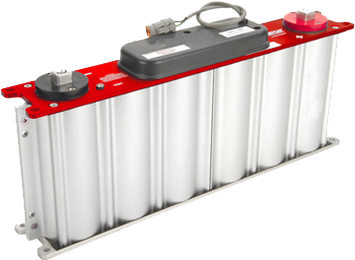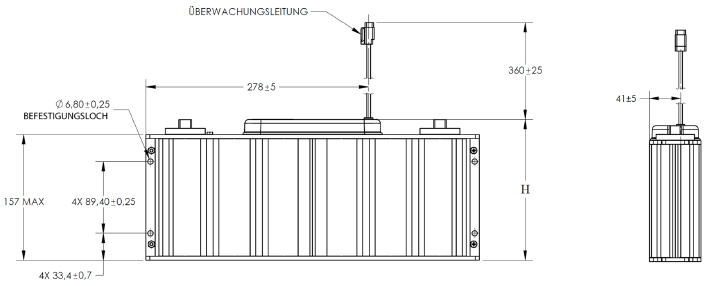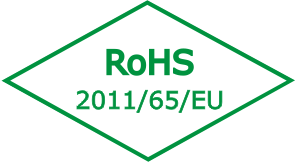
16 Volt Large Module
ASK Technologies’ 16V ultracapacitor module product line provides customers with a broad range of choices to meet their energy storage and power delivery requirements – in a rugged package that can be configured for higher voltages and energy if needed.
This broad selection of modules allows users to optimize for backup power applications or for peak power applications such as cold weather starting. With a peak 16V operating voltage, the 16V module series has commonly been used in place of 12V batteries due to their long lifetime and high power charge/discharge capability.
#p#introduction#e#
ELEKTRISCHE DATEN
Nennkapazität: 500 F
Minimale anfängliche Kapazität: 500 F
Maximaler anfänglicher ESR-Wert, DC: 2,1 mΩ
Nennspannung: 16 V
Absolute maximale Spannung: 17 V
Maximal zulässiger Dauerstrom (ΔT = 15°C): 100 ARMS
Maximal zulässiger Dauerstrom (ΔT = 40°C): 160 ARMS
Maximaler Spitzenstrom: 2.000 A
Leckstrom, maximal: 170 mA
Maximal zulässige Spannung bei Reihenschaltung: 750 V
TEMPERATUR
Operating Temperature (Cell Case Temperature): -40℃~65℃
Storage Temperature (Stored Uncharged): -40℃~70℃
MECHANISCHE DATEN
Masse, typ.: 5,51 kg
Leistungsanschlüsse: M8/M10
Empfohlenes Drehmoment für Leistungsanschlüsse: 20/30 Nm
Vibrationstests gemäß: SAE J2380
Schocktests gemäß: SAE J2464
Schutzart: IP65
Kühlung: Natürliche Konvektion
ÜBERWACHUNG/ZELLSPANNUNGSMANAGEMENT
Interner Temperatursensor: NTC
Temperatur-Schnittstellensignal: Analog
Zellspannungsüberwachung: Überspannungsalarm
Steckverbinder: Deutsch DTM
Zellspannungsmanagement: VMS 2.0
LEISTUNG UND ENERGIE
Spezifische Nutzleistung, Pd: 2.700 W/kg
Spezifische Leistung bei Impedanzanpassung, Pmax: 5.500 W/kg
Spezifische Energie, Emax: 3,2 Wh/kg
Gespeicherte Energie: 17,8 Wh
SICHERHEIT
Kurzschlussstrom, typ.: 7.600 A
Werksseitiger High-Pot Test: 2.500 V DC
Zertifizierungen: RoHS,UL810a (150 V)
THERMISCHE EIGENSCHAFTEN
Thermischer Widerstand(Rcm, von einem Zellengehäuse zum Modulgehäuse), typ.: 1,0°C/W
Thermischer Widerstand(Rma, vom Modulgehäuse zur Umgebung), typ.: 0,45°C/W
Thermischer Widerstand(Rca, Alle Zellgehäuse zur Umgebung), typ.: 0,70°C/W
Wärmekapazität (Cth), typ.: 4.280 J/°C
#p#Parameters#e#

#p#Structure#e#


